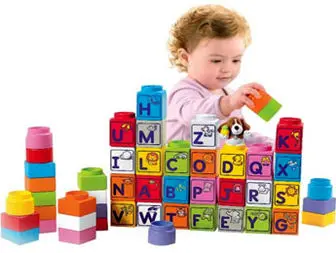
When I was a tot, I learned my ABCs with pictures and words printed on sliced-up trees. I also watched "Sesame Street." These days, many kids are learning to spell with tablet computers. What will Google teach them?
Rolled out two years ago this week, Google Instant shows suggested queries as you type. It was billed as a time saver, shaving two to five seconds off each search.
Google figured that Instant would improve searches because it takes people ۳۰۰ milliseconds between each keystroke, but only ۳۰ milliseconds to glace at suggested results. Before Instant, it took people more than nine seconds on average to enter a term, according to the search engine.
Some love the feature, some hate it. Some claim their reputation has suffered because of it and have sought redress in court.
But one of the most intriguing things about Google Instant is how it presents a list of queries when a single letter is typed. This autocomplete alphabet, as it ' s known, changes frequently according to the most popular searches. Here ' s the latest snapshot of the alphabet, in halves:
A: Amazon. com
B: Bank of America
C: Craigslist
D: Dictionary
E: eBay
F: Facebook
G: Gmail
H: Hotmail
I: IMDB
J: JCPenney
K: Kayak. com
L: Lowes
M: Mapquest
The alphabet is of course dominated by corporations: retailers, Web services, airlines, and a certain social network. U. S. Google users sure love to shop, travel, and socialize.
But different domains produce different results, as seen in this interesting experiment. In Nigeria, for instance, " a " suggests the Arsenal soccer club, while " n " brings up the NBA in Hong Kong(Netflix is lord of " n " on Google. com). Britons are so concerned about rain that " w " produces plain old weather, and Indians get quotes for " q. "
In the U. S. Google alphabet, " dictionary " sounds generic enough, but it brings up Dictionary. com, owned by Web giant IAC. The only thing that isn ' t owned by a giant corporation is No. ۲ in the second half of the list, the Olympics. But that could disappear tomorrow.
" Some queries can change very frequently, " a Google spokesperson says. " Even up to the minute for new trending queries, which is why you will see the query[earthquake] almost as soon as the earthquake starts, because users are searching for it immediately as they experienced it or heard about it. "
The search engine doesn ' t monitor changes in the autocomplete alphabet, and says they ' re the result of several factors, including high - volume queries. If you ' re logged into Google, personal results will appear.
" Popularity is the most dominant factor, but freshness, language, location, spelling, and other signals are taken into consideration as well, " the spokesperson added.
N: Netflix
O: Olympics
P: Pinterest
Q: QVC
R: Redbox
S: Southwest Airlines
T: Target. com
U: United Airlines
V: Verizon Wireless
W: Walmart
X: Xbox Live
Y: YouTube
Z: Zillow
Autocomplete might speed searches, but does it influence what we ' re looking for? Do companies, moreover, benefit from the autocomplete alphabet?
" It ' s dubious to me that anyone looks carefully at suggestions after typing a single letter, but it could be that they have typed a whole word or part of a word and then they see a better suggestion than what they originally had in mind, " Mike Moran, chief strategist at social - media firm Converseon, told Crave. " So, they might have started out intending to search for ' digital camera ' but ended up choosing ' digital camera reviews ' or ' digital camera coupons ' instead.
" To me, companies that want to appear in suggestions after a single letter are looking more for ego gratification than any serious moneymaking opportunity, " says Moran, who co - authored the book " Search Engine Marketing, Inc. " Sometimes marketers try to influence what Google suggests, he adds.
" The reason that people try to manipulate these suggestions is less that they want people to come to their site than it is that they are embarrassed about what is popping up. If Enron was around today, you can bet that they would not be happy to see the suggestions that came up when searchers start typing their company name(' Enron fraud, ' ' Enron scam, ' ' Enron scandal, ' etc).
" It is typically this kind of reputation damage that drives companies to want to manipulate the results, and not merely to want ' Enron ' to pop up when searchers type the letter ' e. ' "
Personally, I'll take "c" for cookie, and no more, any day.














